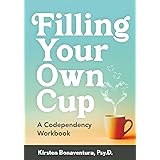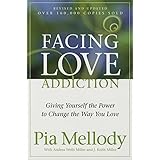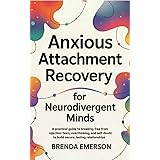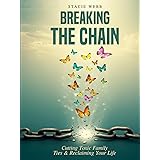Have you ever faced a crossroads in life where an unexpected event completely altered your trajectory, forcing you onto a path you never envisioned? In her raw and honest account, Danielle shares a profoundly personal journey through the challenges of addiction and the transformative, often difficult, reality of forced sobriety.
Her story, picked up in the video above, illuminates the complexities of navigating life’s most significant transitions while battling a relentless disease. It’s a narrative that resonates deeply with anyone who has grappled with the unexpected turns of life, especially when those turns demand a complete overhaul of one’s identity and future.
Motherhood: An Unexpected Catalyst for Change
Imagine finding yourself pregnant while deeply entrenched in a lifestyle of partying and addiction, a life where clubbing and revelry defined your relationships and daily existence. Danielle describes this exact scenario, recounting how a purposeful attempt at pregnancy felt impulsive and unprepared, yet was met with an overwhelming wave of joy and an undeniable sense of destiny.
This paradox highlights the profound internal conflict many individuals face: the desire for a new chapter colliding with the deeply ingrained patterns of substance abuse. The realization that motherhood was now her path, despite never having envisioned it, set in motion a series of events that would demand her to confront her addiction head-on. This initial shock and the immediate shift in perspective serve as a powerful introduction to her journey of addiction recovery, driven by the profound responsibility of bringing a child into the world.
Navigating the Physical and Emotional Turmoil of Pregnancy
The transition to sobriety was not instantaneous or linear for Danielle. Faced with the immediate physical and emotional demands of pregnancy, she describes a period of gradual reduction, notably switching to marijuana to cope with severe nausea, dizziness, and anxiety. This illustrates a common challenge in addiction: the difficulty of stopping “cold turkey” when the body has been dependent on substances for years.
Simultaneously, her external world was crumbling. Relationships strained under the pressure of her partner needing to abandon a life of drug dealing for a “normal job,” compounded by frequent arrests and the constant threat of legal consequences. Danielle, still working as a stripper, felt an increasing discomfort with her job, not just physically as her belly grew, but morally, a profound sense of not feeling “safe in her own body” anymore. This internal moral compass, often dulled by addiction, began to reassert itself, signaling an awakening driven by the life growing within her. It’s a vivid illustration of how the impending responsibility of motherhood can begin to shift one’s core values, even before the child arrives.
The Depths of Postpartum and Unwanted Sobriety
The birth of her daughter plunged Danielle into an even deeper struggle, marked by debilitating postpartum depression and the jarring reality of unexpected sobriety. Without the “chemicals running through my body that I had been doing for years and years and years,” as she vividly puts it, she felt her world was truly “over.” This abrupt cessation of long-term substance use, coupled with the immense emotional and physical demands of a newborn, created an overwhelming sense of abandonment. This feeling echoed deep-seated childhood trauma, a powerful and painful connection that often surfaces during intense life changes.
Imagine being at your absolute lowest point, weak, isolated, and burdened by a new life depending solely on you, all while navigating the raw, unfiltered emotions that addiction had long suppressed. This period was characterized by incessant crying, deep resentment, and the delusion that she could somehow “get her life back” and return to her music career. It’s a stark reminder of how challenging postpartum depression can be, especially when intertwined with the struggle of forced sobriety, where the absence of familiar coping mechanisms amplifies feelings of loss and despair.
Relapse, Resentment, and the Call for Intervention
Despite her initial efforts to manage sobriety on her own—attending school, working, and caring for her daughter—the underlying resentment simmered. She longed for her old life of partying and dating, wishing her daughter would “grow up fast enough” so she could reclaim her perceived freedom. This internal conflict is a common precursor to relapse in addiction recovery, where unmet emotional needs and the desire to escape discomfort can be overwhelming.
Her struggles manifested in risky behaviors: sneaking out at night, engaging in casual hookups, and ultimately, falling back into drug use with a new partner. The inevitable consequence arrived when her mother discovered her passed out drunk, her baby crying nearby, leading to a family intervention and the threat of being kicked out. This pivotal moment forced her into rehabilitation, a decision she initially resisted fiercely. Her initial resistance, kicking and screaming, perfectly illustrates the denial and anger that can accompany being pushed into treatment when one doesn’t feel ready. This experience in a rehabilitation center for mothers and children, surrounded by other struggling moms, marked a jarring confrontation with a reality she had desperately tried to avoid. The absence of chemicals in her system, after 20 years of use, intensified her emotional turmoil, leading to constant fighting and a profound sense of her life being “over.”
Breaking the Cycle: The Search for Authenticity and Lasting Change
The patterns of addiction, unhealthy relationships, and the threat of losing her children repeated themselves, even after rehab. Danielle describes a harrowing cycle where each new partner or circumstance mirrored past experiences, leaving her feeling abandoned and questioning how to “differentiate the truth from the false.” The emotional toll of having her children constantly monitored or even removed by CPS underscored the devastating impact of her ongoing struggles with substance abuse.
Despite these relapses and setbacks, a crucial shift began to occur. Danielle alludes to an internal, almost spiritual awakening, a moment where “all power and all being came in and decided that I was ripe and I was ready” for a sober journey. This isn’t just about external pressures anymore; it’s about an internal readiness that transcends past failures and resentments. This journey of addiction recovery is rarely linear, often involving multiple attempts and profound self-discovery. Her story is a testament to the persistent hope that, even when faced with repeated cycles and the deepest despair, a moment of true readiness can emerge, propelling one toward a path of genuine healing and change, regardless of the pain of forced sobriety.











